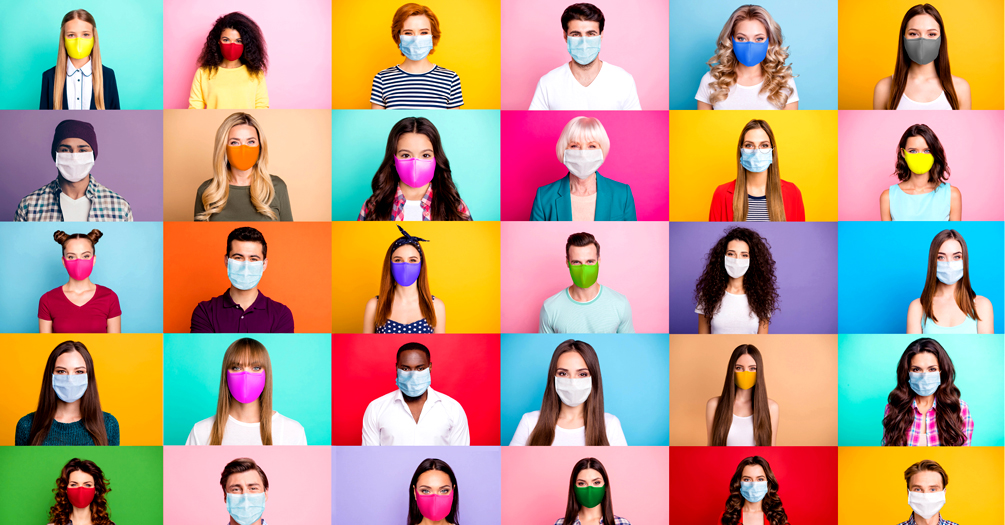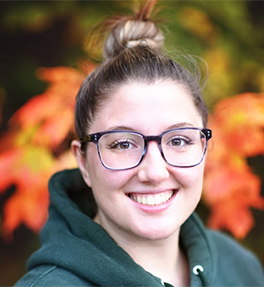To the Next Generation of Public Health Students: Balancing Activism, Studying, and These Unprecedented Times

Alex Parks
Master’s Student in Health Behavior and Health Education
When I started my first semester as a Master of Public Health student at the University of Michigan School of Public Health in Fall 2020, COVID-19 cases were climbing, a polarizing election was looming, and we had all just gone through a summer of racial reckoning in which numerous high profile police killings—including Breonna Taylor, George Floyd, and Rayshard Brooks—were brought to the forefront of public discourse. I was nervous about taking my classes online via Zoom but was still excited to start my career in public health and add my energy to movements addressing these overlapping public health crises.
Fast forward to the winter semester. The pandemic was still raging, I was emotionally exhausted by the election, and we had just watched a group of armed extremists storm the nation’s capital with little resistance. These events, compounded with the hecticness of 2020, left me a tired, angry, and heartbroken abolitionist who wanted to see how my current trajectory in public health could focus on combating state violence.
Now, halfway through my MPH program, I am still tired, angry, and heartbroken. But I am much better equipped with information I can use to approach my role as a public health student and in my steadfast activism for these topics.
Public health needs the whole of your experiences to continue to show up and fight for health and equity for all.
I came to public health with moral convictions that state violence is wrong, structural racism must be systematically dismantled, and military colonialism is bad for our health. But I left my first year with solid evidence, frameworks, and statistics with which I can back up those convictions.
I can’t be told that it isn’t the place of public health officials to criticize the military-industrial complex because I know that Arab moms and babies suffered health consequences when the US government endorsed islamophobic violence after 9/11. I’m ready when someone responds to my abolitionist comments with “not all cops'' because I can articulate the fact that individual good intent is not sufficient to combat a systemically racist system that puts guns in the hands of people who have spent their lives exposed to racist frameworks about “symbolic assailants.”
At risk of contradicting myself, the other piece of knowledge I left this year with is that all the evidence I just wrote about is equally or less important than the personal stories of those experiencing this violence. I love science—I majored in natural science, am pursuing a social science degree, and deeply believe in the scientific method.
However, as scientists, we can sometimes forget that in the real world people know what is happening in their communities and know what they need to be safer. When someone tells a public health professional that they don’t feel safe when Immigration and Customs Enforcement patrols their neighborhood, we don’t need a systematic investigation measuring average cortisol levels of neighborhoods over time to confirm that they are indeed stressed. We can just believe their experience and act.
Similarly, public health advocates absolutely need to advocate for more and more transparent data about police violence and its impacts. But a predominantly Black neighborhood isn’t waiting on that data to decide if they should be afraid of the police. And we shouldn’t be waiting for that data to decide to do something about police violence.
I love science, but we can’t let science take its sweet time at the expense of tangible action that makes communities safer. People’s stories matter, their voice matters, their experiences matter. Community-based participatory research is one of our best tools in enacting this change many of us wish to see.
With this in mind and as we head into a new semester, I’ll leave you with some practical advice: Do as many class readings with friends and peers as possible. If you’re a procrastinator like me, it’ll force you to get the assignments done in a timely manner. But more importantly, you’ll be able to process the difficult content in real time, and to reflect and unpack the topic with others.
Being a grad student in public health demands a lot of emotional labor. Consuming endless information on violence and oppression gets isolating, exhausting and desensitizing really fast. If you like audiobooks, download the Libby app and go on a walk while you listen to assigned chapters. It’s hard to get outside during Michigan winters, but I’ve found that moving my body while consuming stories about trauma and violence has helped so much in my processing of this content.
It’s an exciting time to be joining the field of public health! We need voices who care about their work and listen to communities. We need your energy, enthusiasm, and excitement for change. But we also need you when you’re tired, frustrated, pessimistic, and angry. Public health needs the whole of your experiences to continue to show up and fight for health and equity for all.
About the Author
 Alex Parks is a second-year Master of Public Health student in Health Behavior and
Health Education. She completed her undergraduate degree at the University of Michigan
in Evolutionary Anthropology. Academically, she is interested in the public health
impacts of policing and incarceration and is currently working on projects related
to the implementation of unarmed crisis responses in Washtenaw County.
Alex Parks is a second-year Master of Public Health student in Health Behavior and
Health Education. She completed her undergraduate degree at the University of Michigan
in Evolutionary Anthropology. Academically, she is interested in the public health
impacts of policing and incarceration and is currently working on projects related
to the implementation of unarmed crisis responses in Washtenaw County.
- Interested in public health? Learn more here.
- Read more articles about health disparities.
- Support research and engaged learning at the School of Public Health.
